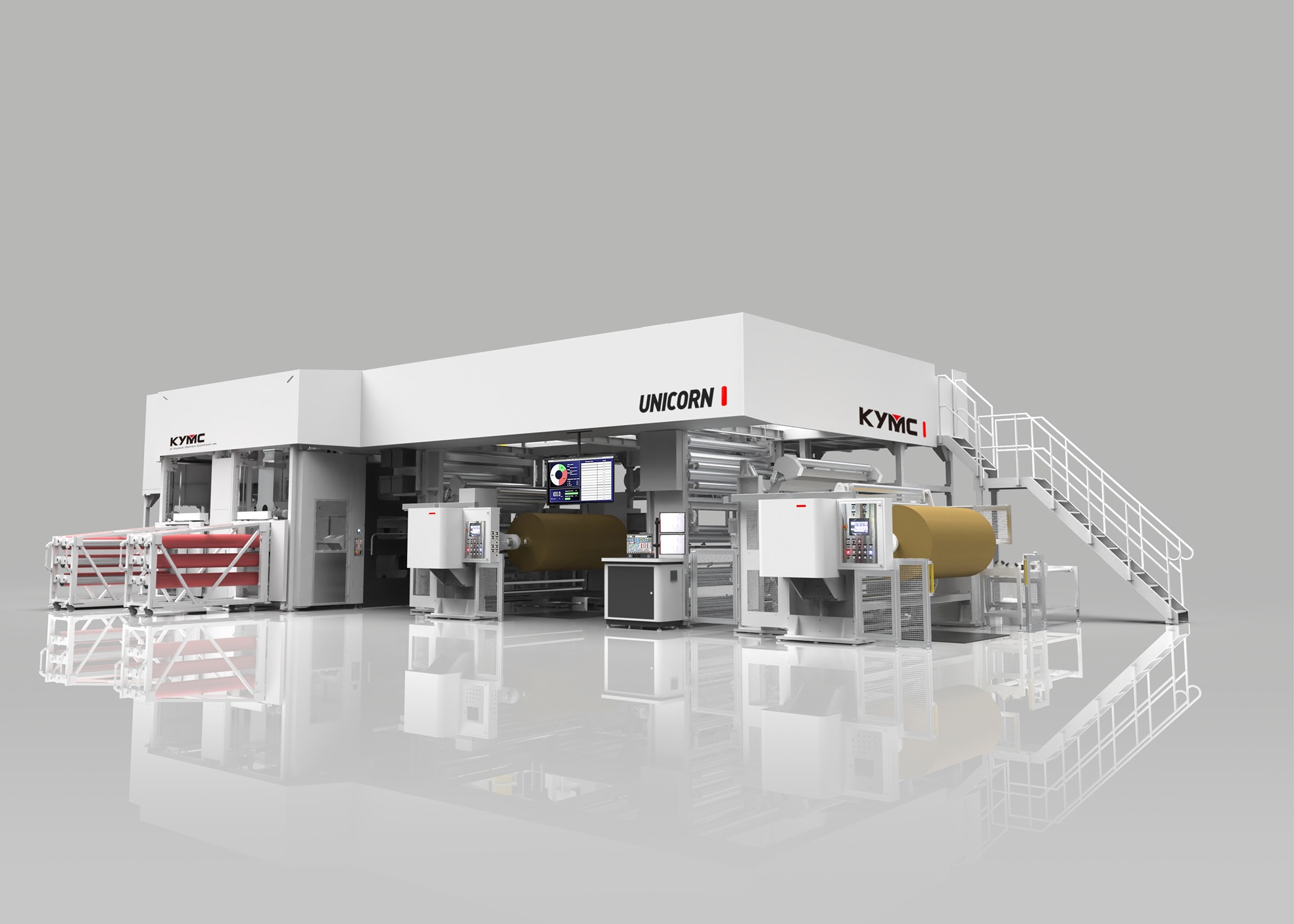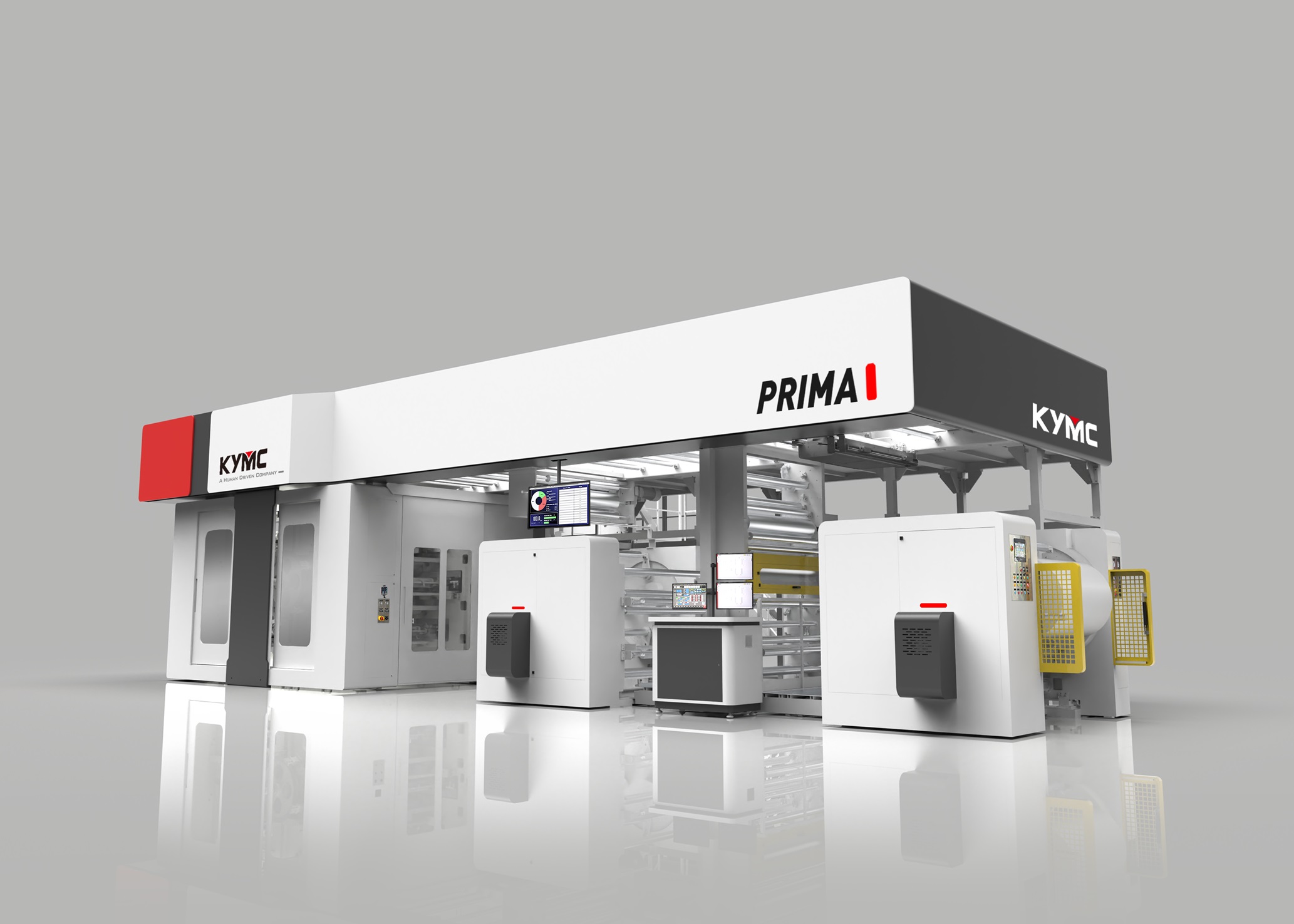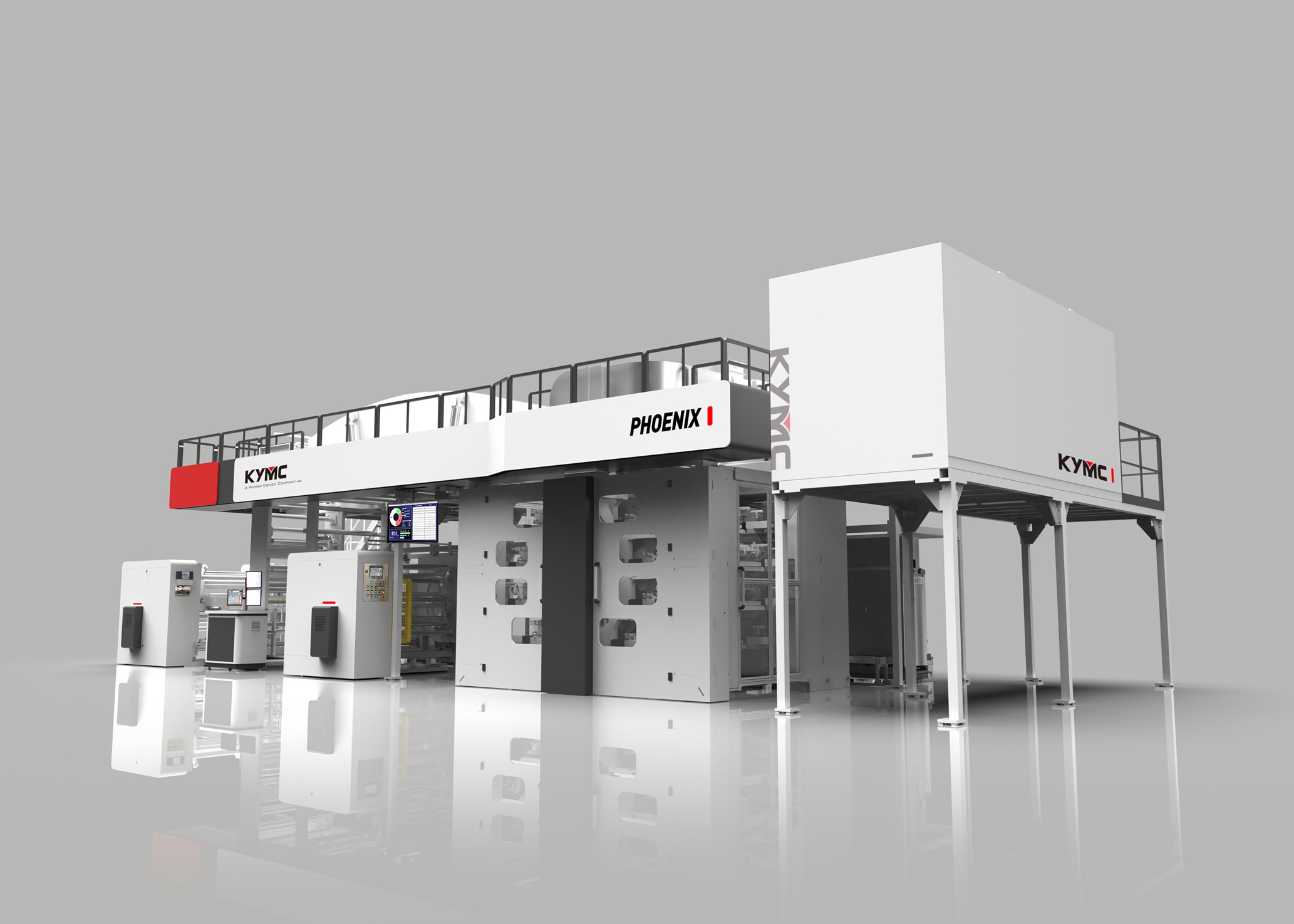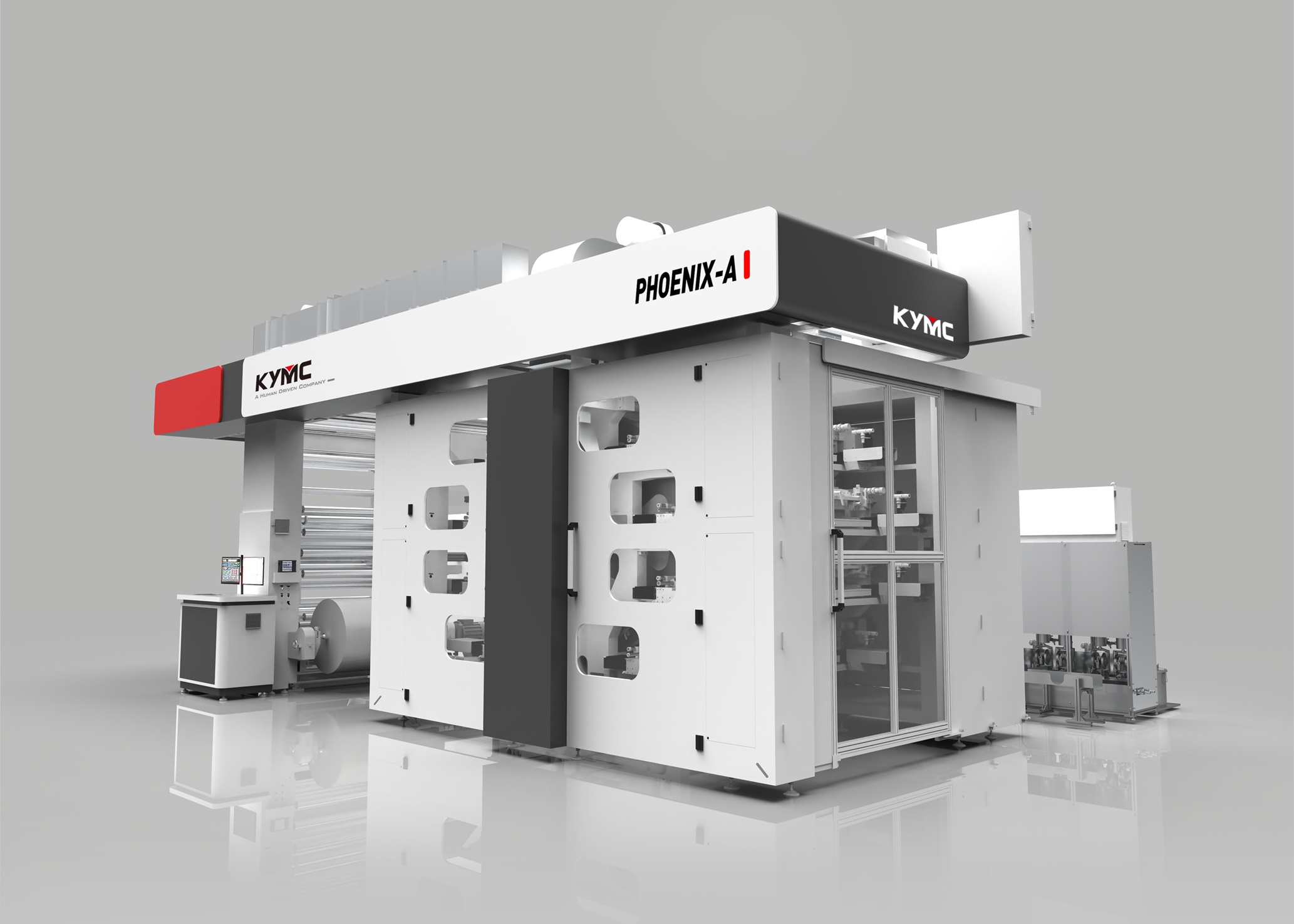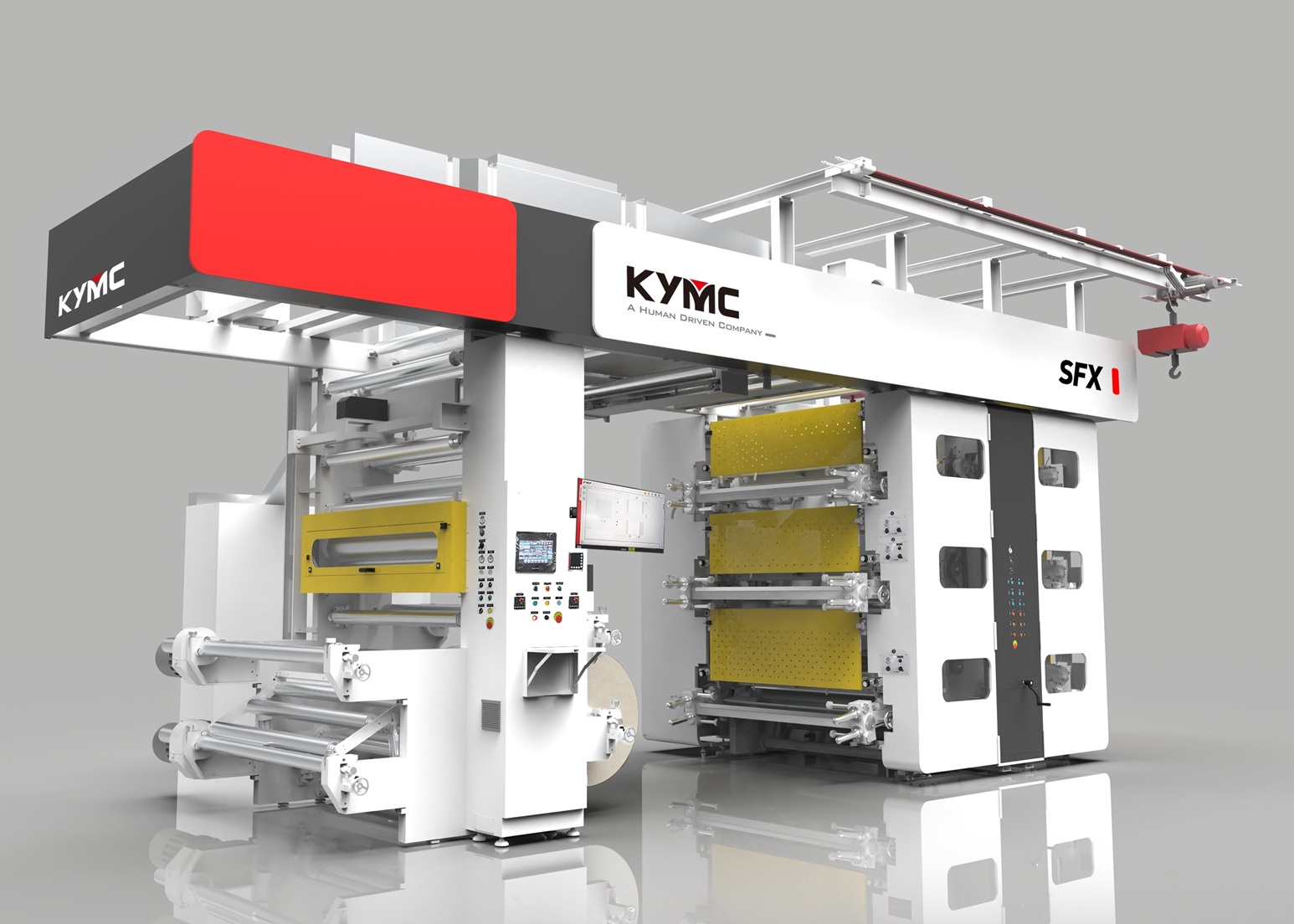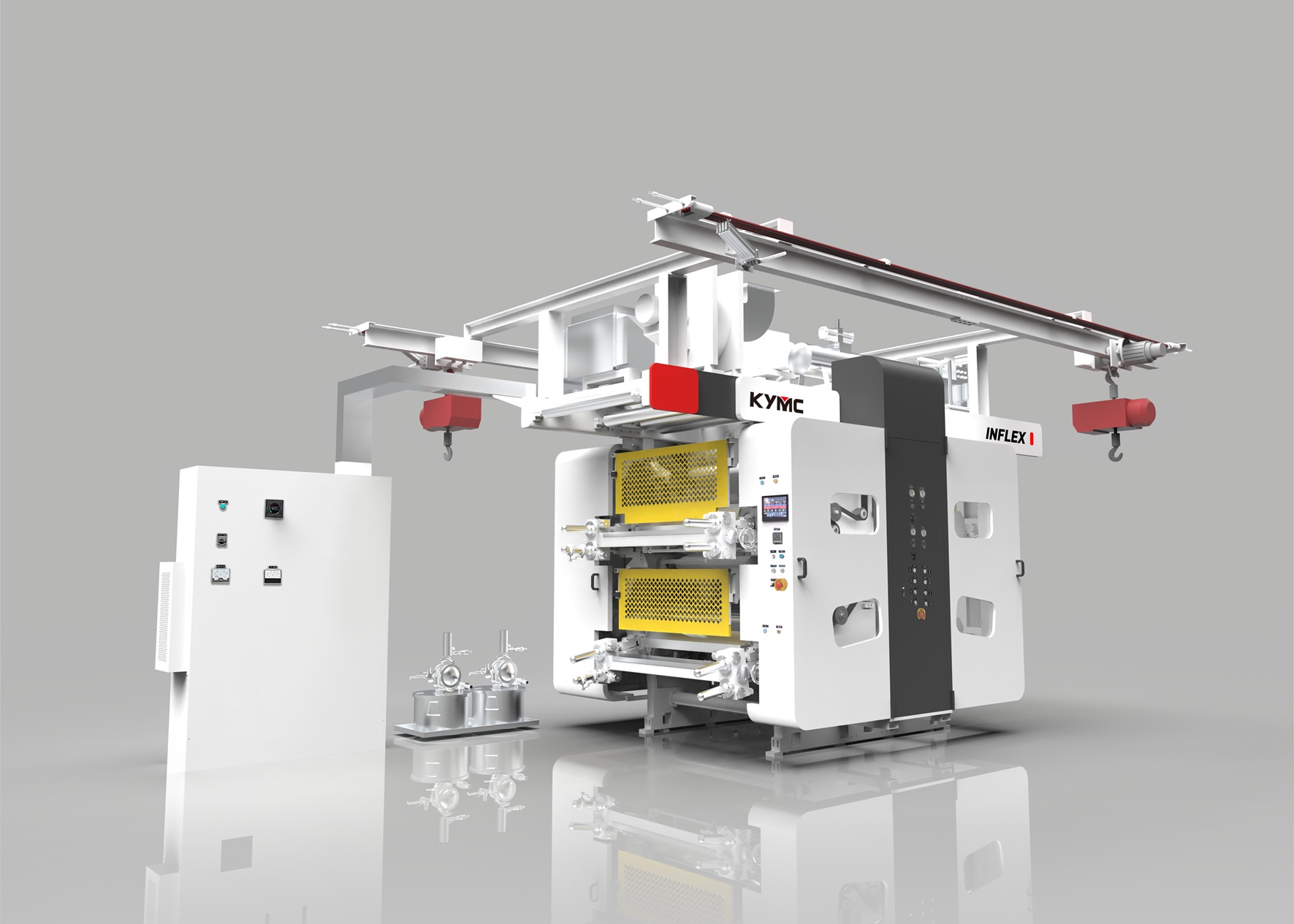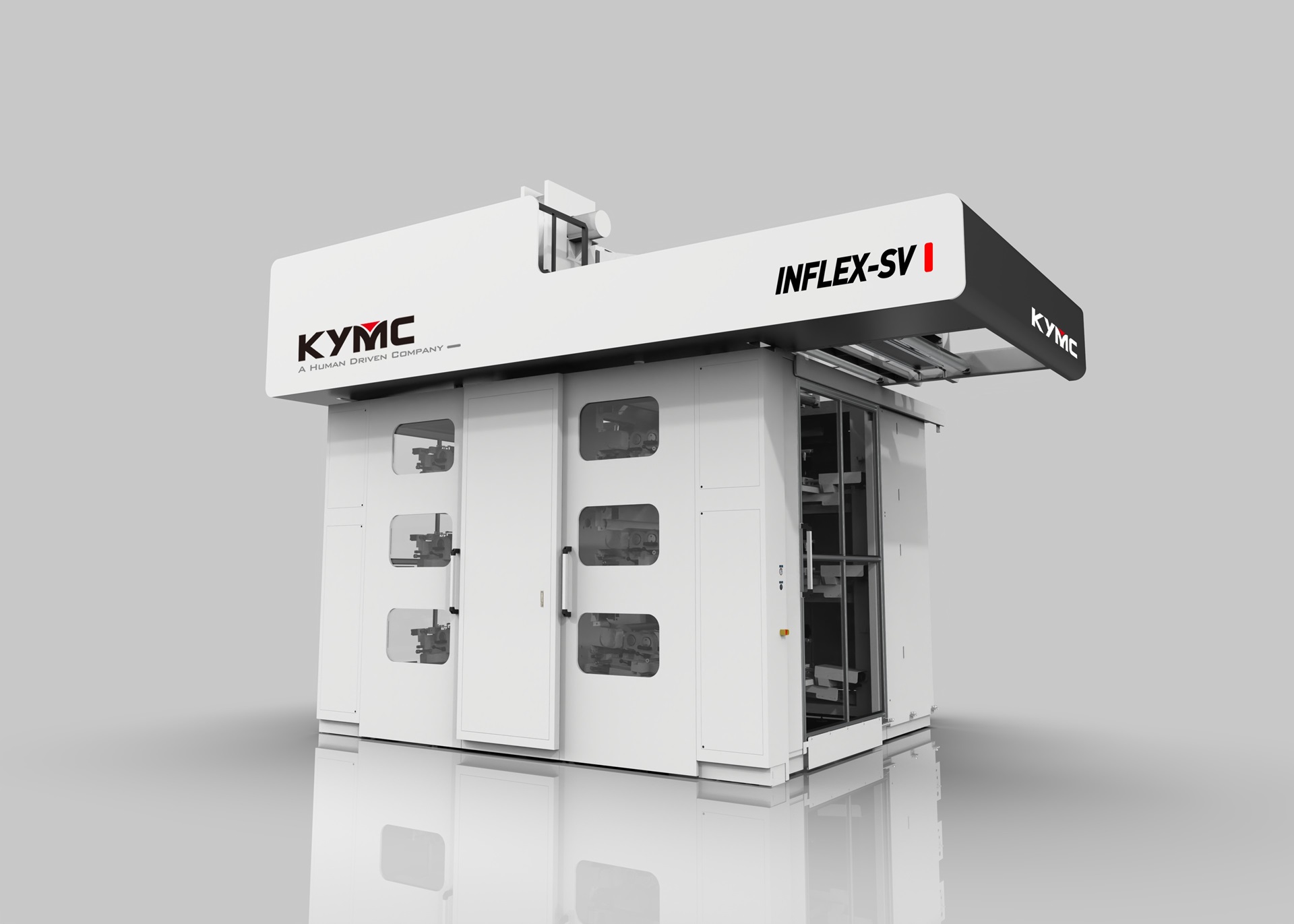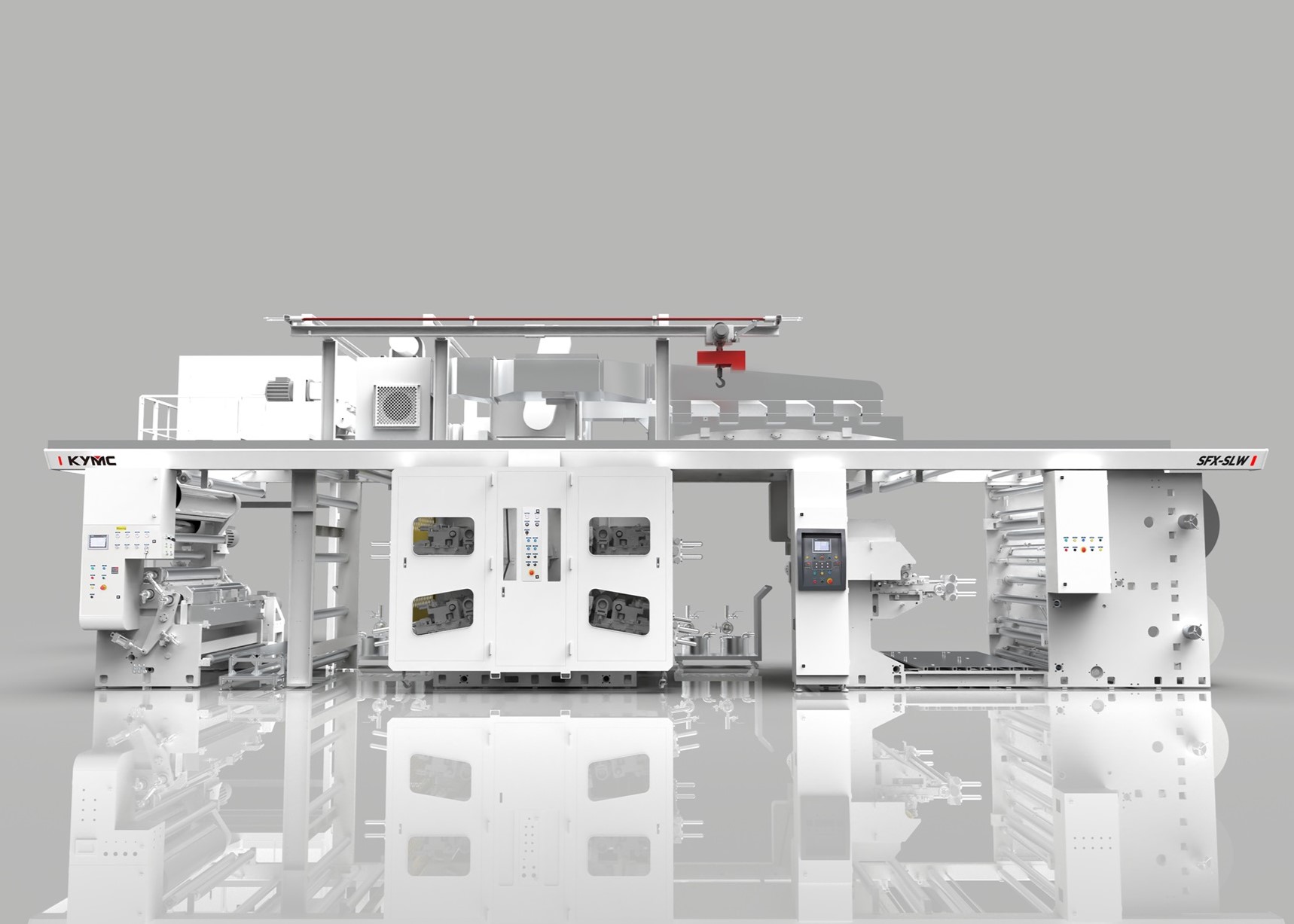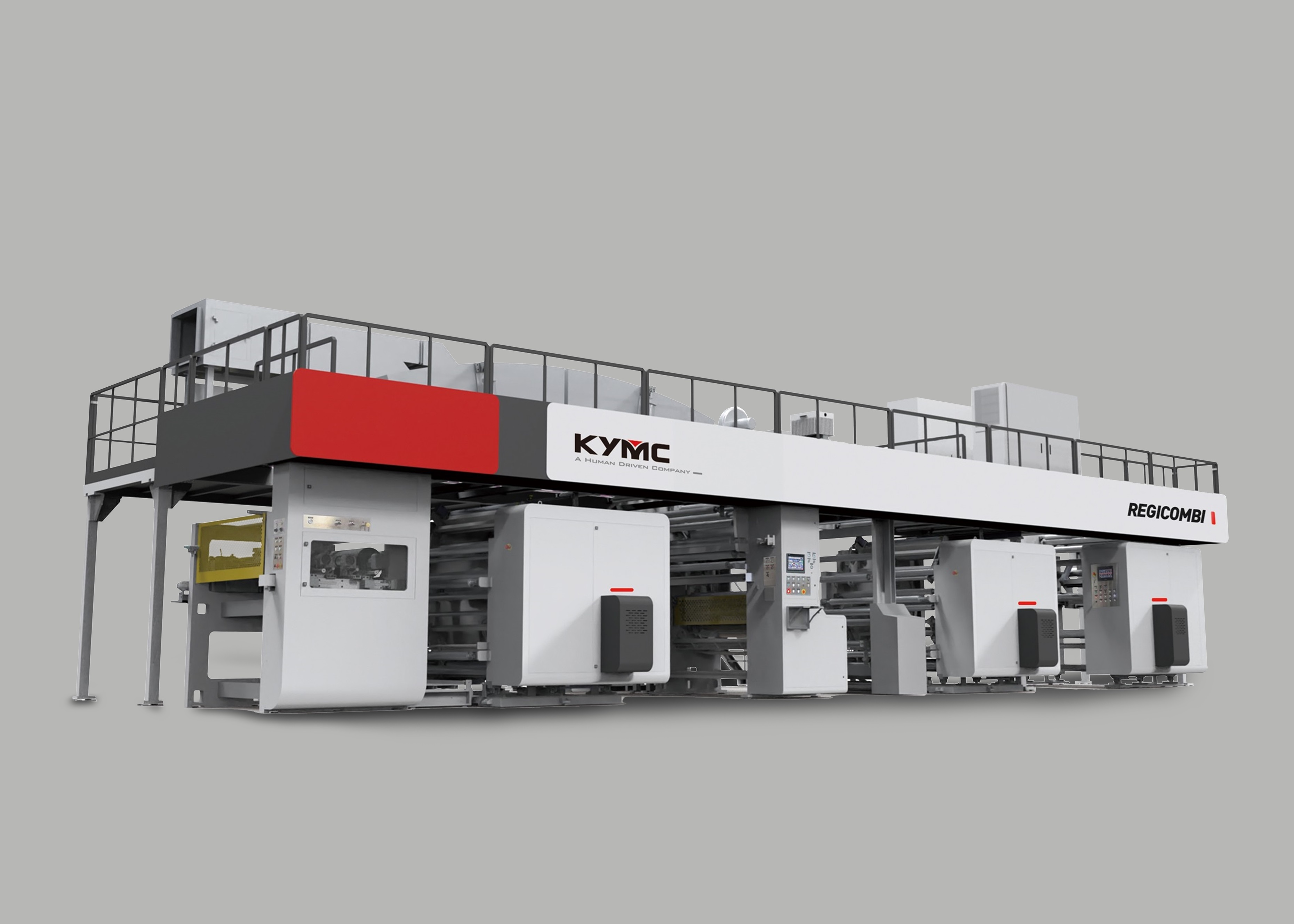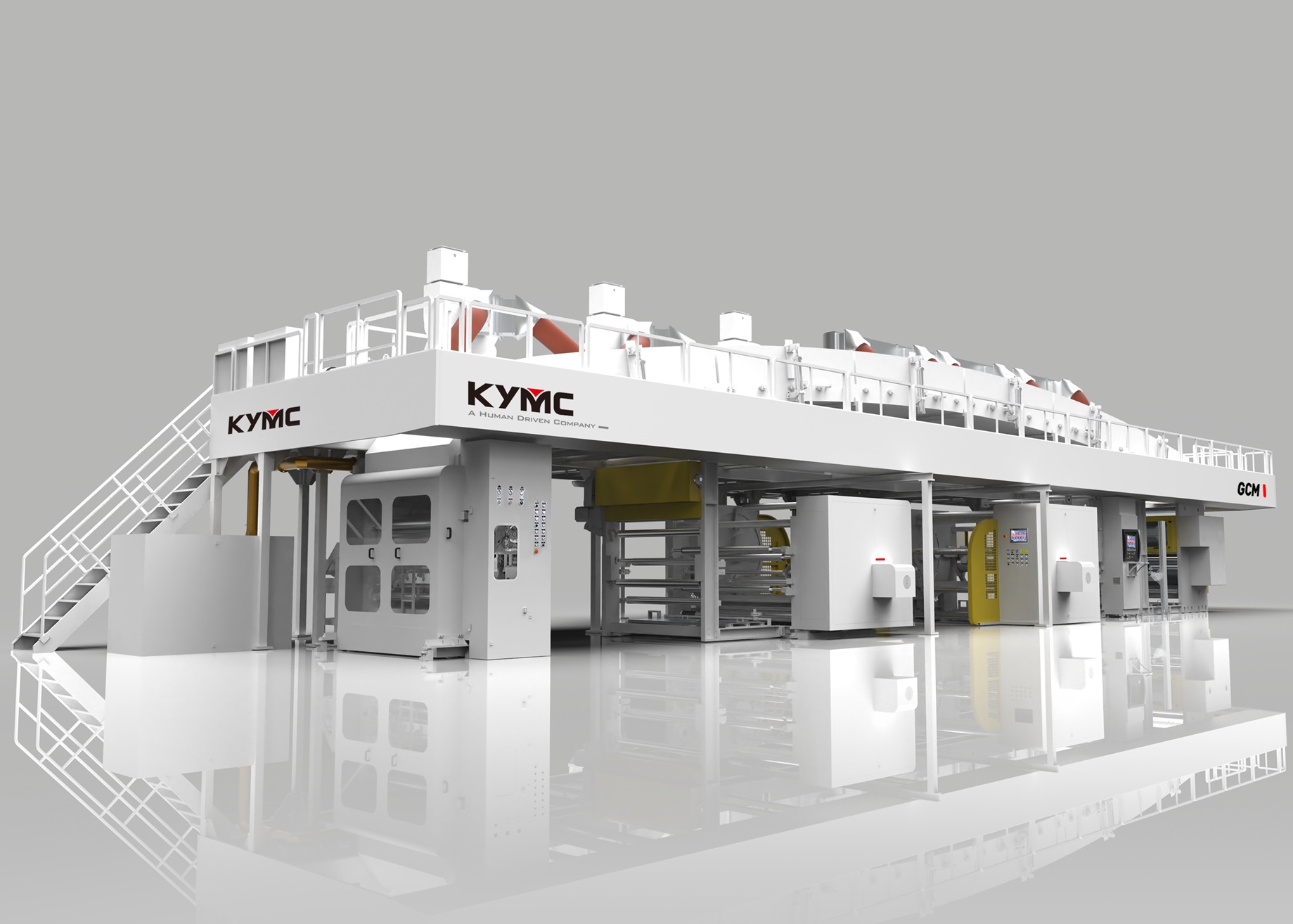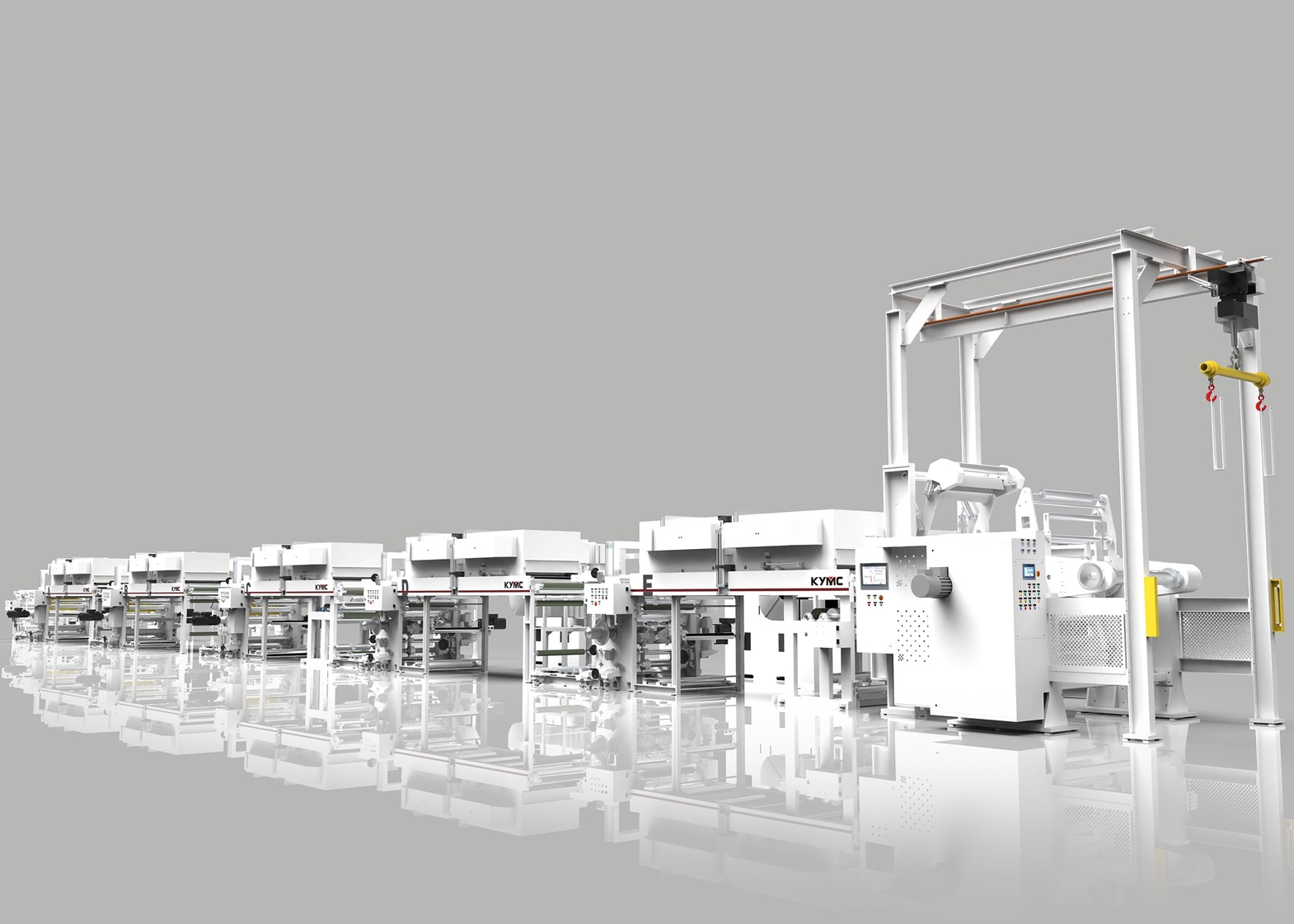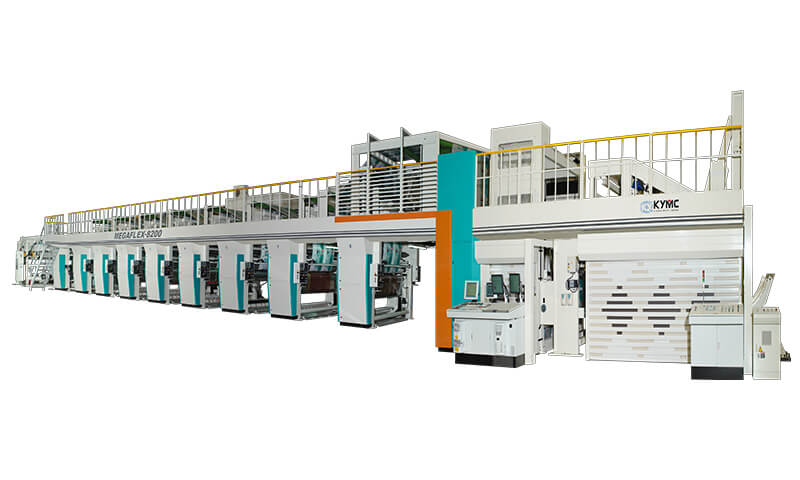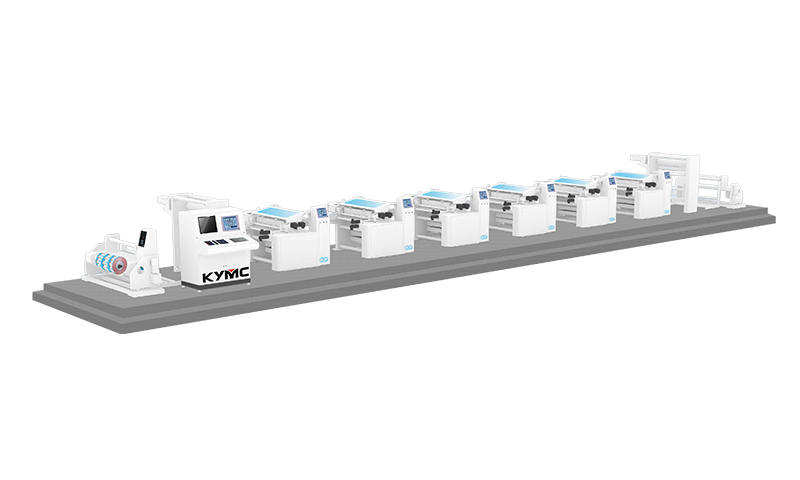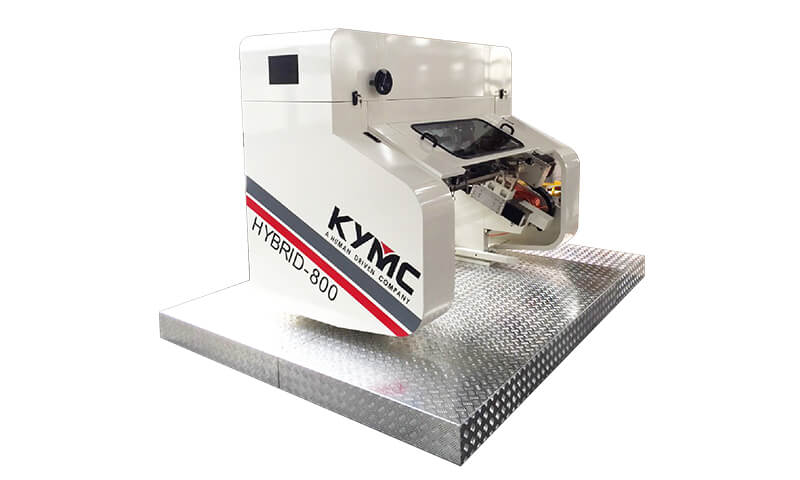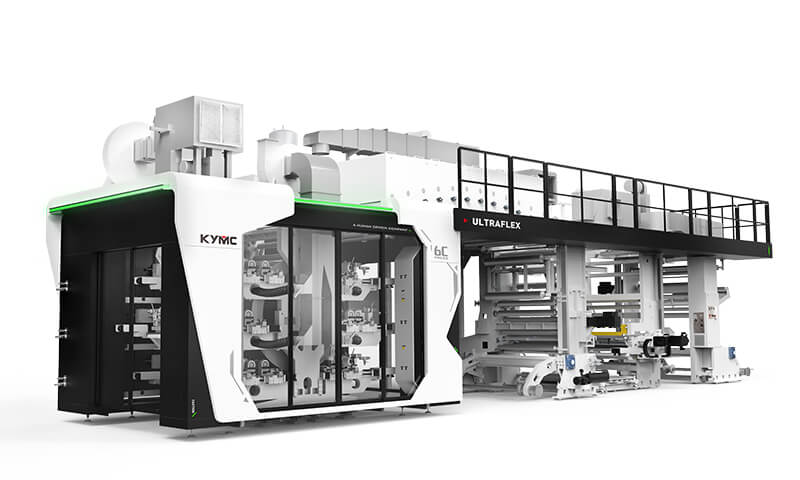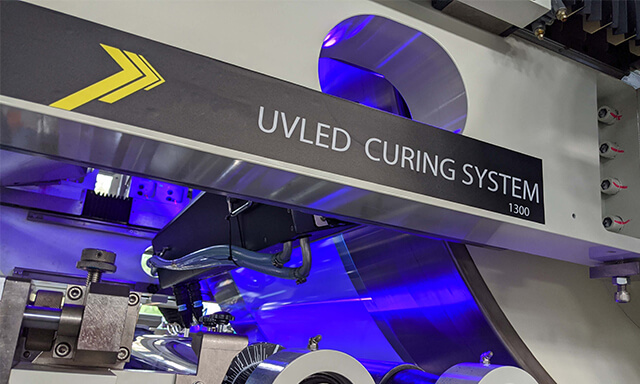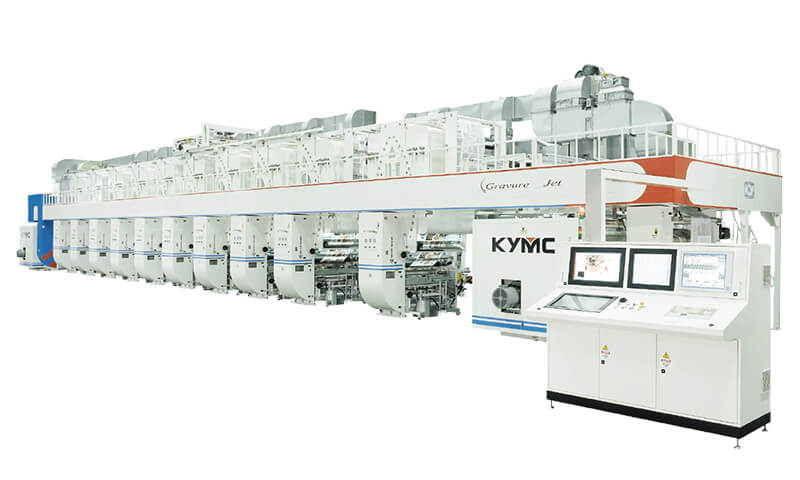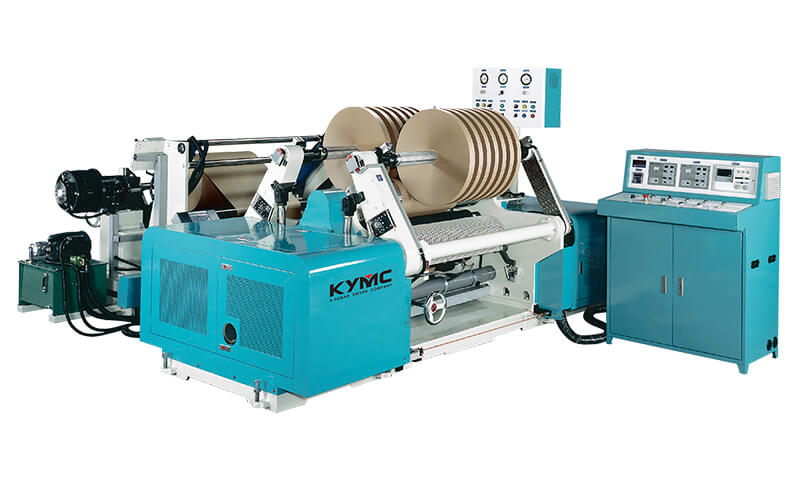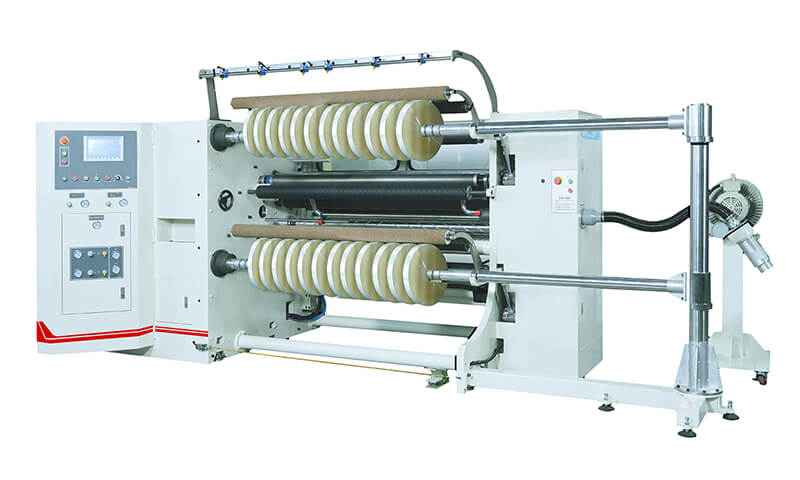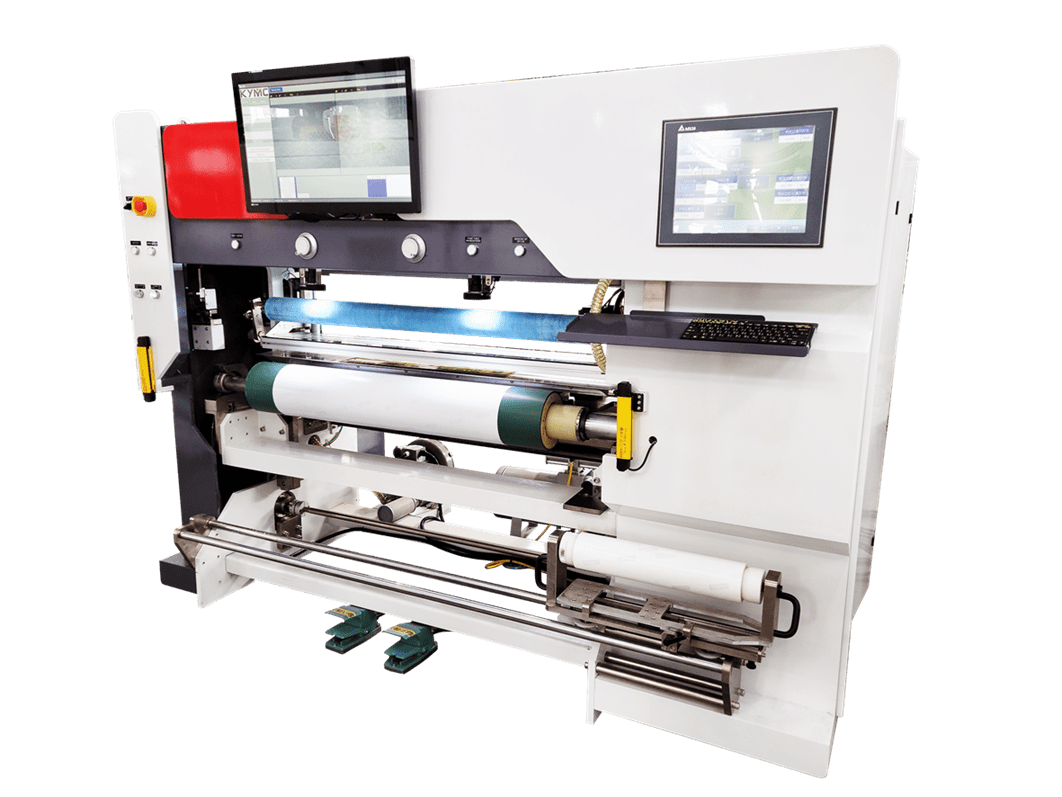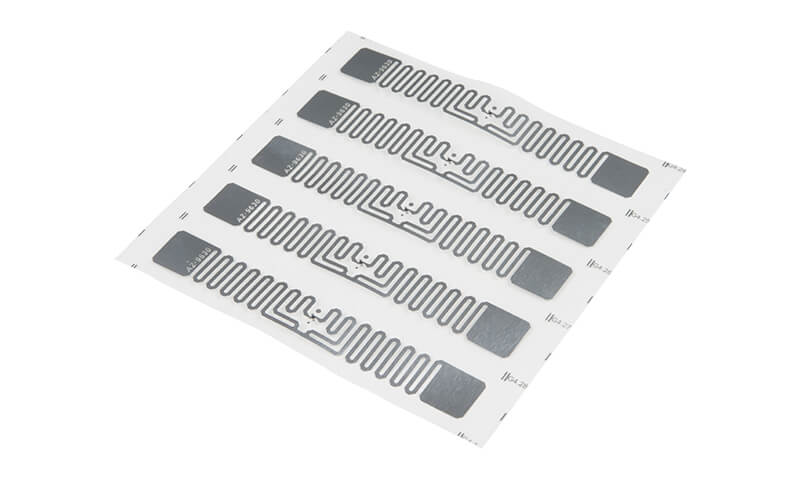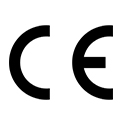KYMC X ESG X Paper Application – Japan Market

KYMC is a machinery manufacturer that specializes in roll-to-roll (R2R) flexographic printing machinery, and coating & lamination machinery. KYMC headquartered in Taiwan was founded in 1968. Over the past 50-plus years, KYMC has served the worldwide market with quality machines that come at an affordable price. KYMC is now working with Fuji Shoko to better serve the Japanese market. Together, the two companies are confident that they can deliver the highest customer service standards to the Japanese market.
KYMC began its journey in providing rotogravure printing machinery. Over the years, as the market trends toward environmentally friendly solutions, KYMC has stepped foot into flexographic printing machinery and coating & lamination machinery. To provide flexographic printing machinery that prints on alcohol-based ink and on more environmentally friendly water-based ink. To provide flexographic printing machinery that prints on plastics and on more environmentally friendly paper substrates / mono material substrates. To provide environmentally coating and solution for plastics and more environmentally friendly paper products. In recent years KYMC has focused on two main areas: One, helping our customers in their ESG (environment, social, governance) strategies to become a sustainable business. Two, to help meet the paper packaging market demand as more and more countries are banning the use of plastics.
KYMC X ESG
Sustainability in business refers to a company’s strategy and effort to reduce negative environmental impact from its business operation. An organization’s effort into sustainability is often measured by the ESG metric or environment, social, and governance. KYMC devoted one of our focuses to ESG because ESG has become increasingly important over the years. ESG matters in a company’s long-term growth in the market. According to McKinsey & Company, the internet search for ESG-related topics has grown fivefold since 2019. More than 90 % of S&P 500 companies now publish ESG reports. In the Japanese investment market, even though the rate of new investments has been falling, the capital investment flowing into sustainability-related funds quadrupled from 2016 to 2018 to a total of $2.2 trillion. Therefore, CEOs and senior business executives are highlighting the importance of ESG and are rising quickly in their priority.
“E” of ESG (Environment)
This mainly accounts for the environmental impact of a company’s carbon emissions and waste discharge, including toxic and hazardous materials. In October 2023, Japan joined Europe in pledging to reach net-zero carbon emissions by 2050. From an environmental perspective, KYMC machineries are designed to help reduce energy consumption by equipping their machines with energy recycling systems. KYMC provides flexographic printing machines that can work with water-based ink to reduce VOC emissions. KYMC machines can be customized to integrate the printing, coating, and lamination into one machine to improve efficiency and therefore to reduce waste production during job changes.
“S" of ESG (Social)
The social factor is about putting people first. It’s about the relationship between a company, its employees, and the communities where the company conducts business. KYMC machines are equipped with an alert system to notify unusual machine performance or irregular environmental measures to keep the machine operator safe. For instance, the LEL (lower explosive limit) sensors to monitor the concentration of flammable gases in the working environment to prevent fire hazards. To install irregularity detectors in machines for detecting irregular temperature and vibration to reduce accidents caused by machine malfunctions. To have sensors to stop the machine when operators step into unsafe zones while the machine is operating. To have protection gates and at the same time prevent the machine from starting if protection gates are not closed. The automation features on the KYMC machines support a better working environment for the operators, to take away some of the loadings from humans. For instance, auto ink viscosity and temperature control, auto ink washing, auto registration, and auto impression control.
“G” of ESG (Governance)
Key metrics around corporate governance are about the internal system of practices, controls, and procedures a company adopts to govern itself, make effective decisions, comply with the law, and meet the needs of external stakeholders. KYMC machines provide central dashboards and data collection functions to monitor historical and current operational performances. Data can be extracted for statistical analysis, helping the company in its decision-making process. To help the company in its continuous improvement (Kaizen) efforts to achieve lean manufacturing where waste is minimized, and productivity is maximized.
KYMC X Paper Application
Japan consumes the second highest number of plastics per capita in the world and lags many other developed countries in its effort to reduce plastics. However, this is to change in the future. Japan introduced its first single-use-plastics legislation in July 2020, stating retailers must now charge for plastic shopping bags unless the shopping bag is biodegradable or made from materials with bio-based content greater than 25%. From April 2022, retailers and hotels in Japan are required to charge customers for plastic utensils and amenities. These are the signs of the Japanese government to reduce plastic use. Plastic usage will not go away, therefore there will be 3 main trends related to plastics. One, better management of the plastic recycling system. Two, a market for biodegradable composite materials. Three, the rise in paper applications on the market. KYMC is an experienced provider of paper application machines. To provide the market with flexographic printing machines that print on paper substrates and to provide coating and lamination machines that apply on paper substrates.
Paper packaging
Paper is much more recyclable than plastic. However, paper is less durable than plastic and is not water or grease-resistant. Therefore, it may not be suitable for packaging that requires a barrier towards water or grease. Other than that, paper packaging can be applied to many other packaging, especially packaging for logistics purposes. Corrugated board and carton paper packaging are commonly used in logistics. As the e-commerce industry is on the rise, the usage of corrugated board and carton paper is also increasing. KYMC has ample experience in the pre-print process for the corrugated board. To apply flexographic printing to the linerboard before it is glued to the corrugated medium for maximum production efficiency. In the post-COVID-19 era, the demand for takeout also increased. Therefore, the need for takeout bags also increased. KYMC has ample experience in the paper packaging industry. To apply water-based ink flexographic printing onto a paper substrate. KYMC is also a solution provider specialized in in-line process design for different applications to reduce waste, such as printing in-line with the paper bag making machines, printing in-line with foil/paper laminating, printing in-line with sheeting/die cutting, printing in-line with wax coating, etc.
Paper cup
Single-use plastic cups are banned in many countries. While single-use plastic cups in Japan haven’t been banned yet, the Japanese government and the public are in support of the cutting down of single-use plastic cups. From what we have seen on the market, Canada, Australia, UK, Kenya, Taiwan, and many countries in the European Union have banned the use of single-use plastic cups. The result of this ban is the increased demand for paper cups. According to Bloomberg, the paper cup market size is expected to reach USD 9.1 billion by 2030. This increase in paper cup demand turns into a challenge for manufacturers to increase their production capacity to meet the demand. To automate the process as much as possible to achieve efficient and quality production. KYMC is experienced in integrating the different machines required in paper cup production, such as flexographic printing, coating machines, and other converting equipment. For those who are stepping into the paper cup production market for the first time. KYMC is able to support its customers not only from an equipment perspective but also from a supply chain perspective by providing know-how related to ink, flexographic plates, different paper substrates, flexographic printing sleeves and anilox, doctor blades, and much more. To help their customers combine the segmented knowledge into a whole picture, allowing the customers to start from zero and become a professional paper cup manufacturing vendor.
Water-based barrier coating
Water based coating is a more environmentally friendly process to establish barrier function when compared to solvent based coating. According to a market research conducted by Credence Research, Inc. the global demand for water based barrier coatings was valued at USD 5.8 Billion in 2022 and is expected to reach USD 8.89 Billion in 2030, growing at a CAGR of 6.30% between 2023 and 2030. KYMC is capable of providing different water based coating methods such as gravure coating, reverse gravure coating, flexo coating, four roller coating and reverse roll coating. The coating method is paired up with specially designed drying methods such as Hybrid Oven (IR + hot air) or NIR fast drying. The KYMC drying design ensures the most efficient drying process where just enough energy is applied, and the coating solution is dried.
KYMC is committed to helping its customers in becoming a sustainable business by targeting each of the ESG metrics. To achieve ESG goals, the KYMC machines are designed to reduce environmental waste, improve workers' safety, reduce workers loading, and provide their customers with the ability to improve continuously with the availability of data for analysis. KYMC has seen the opportunity in the paper application market and, therefore, has devoted resources to help their customers succeed in the paper packaging sector and the paper cup sector. Not merely providing the equipment needed, but also with supply chain know-how to ensure an efficient and quality production line.

